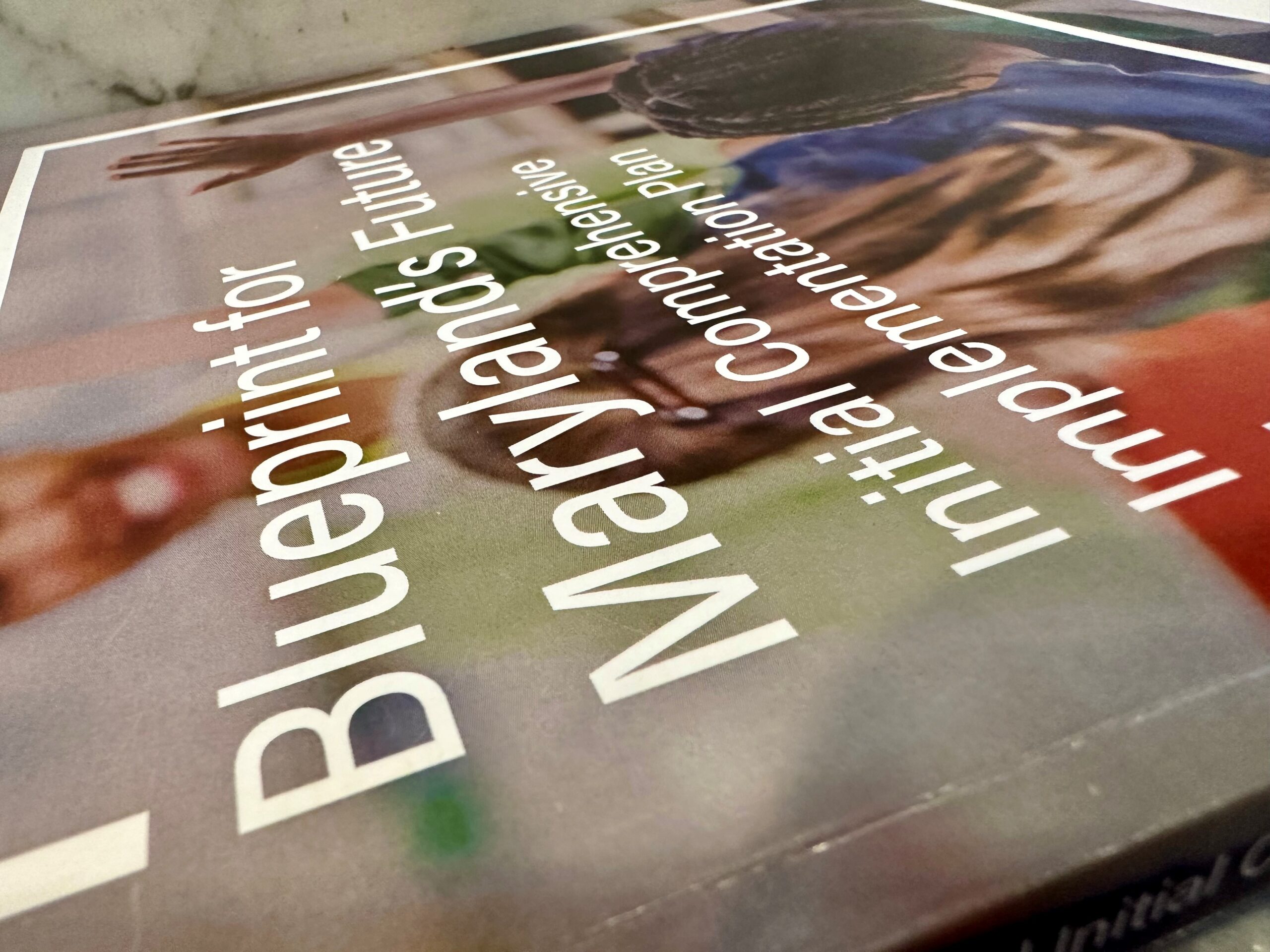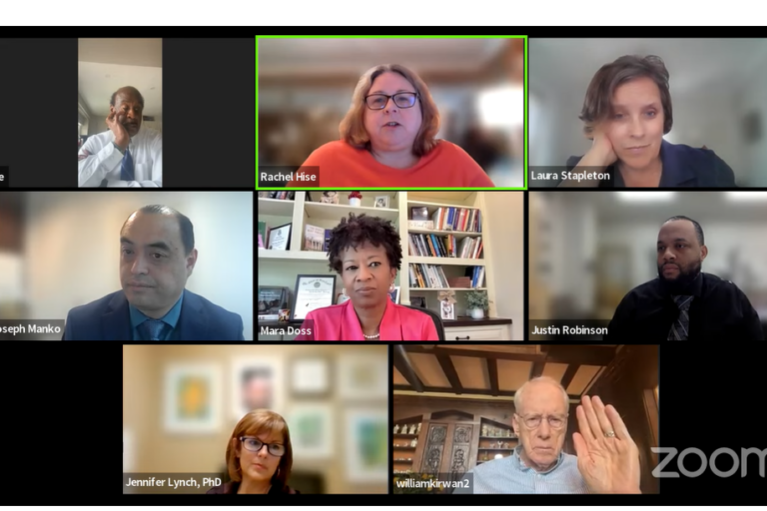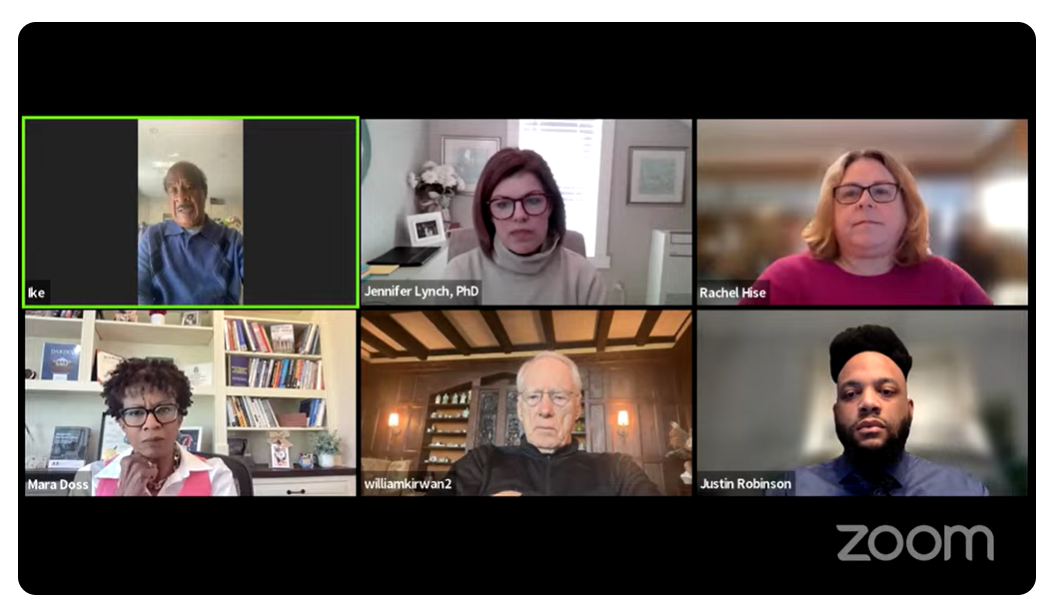Blueprint Accountability Board Seeking Advisers on Key Education Policy Areas

The board charged with overseeing the implementation of a decade-long plan to reform the state’s education system announced that it is seeking applicants to advise them on key policy areas.
The Blueprint for Maryland’s Future, which took years to pass, is a multibillion-dollar effort to bring new programs to public schools that will expand early childhood education, increase pay and career opportunities for teachers, invest in college and career preparedness for students and provide more support to high-poverty schools.
The seven-member Accountability and Implementation Board plans to have four advisory committees, each tasked to undertake a key policy area of the reform plan: early childhood education, high-quality teachers, college and career readiness and “more resources to ensure that all students are successful,” specifically for English language learners, low-income students and students with special needs.
“The AIB believes it is crucial to our mission to include many diverse voices from across the State to assist in this endeavor,” Isiah Leggett, the chair of the AIB, said in a statement. “Participation and transparency are critical to the success of the Blueprint and the AIB.”
Using their personal experience and engaging with communities they represent, committee members will provide feedback to the accountability board on the implementation of the Blueprint and flag any concerns.
Each committee will consist of up to five members, who will have two-year terms and must meet at least every quarter of the year. Committee members must also “represent every region of the State,” according to a press release. The deadline to apply is by midnight on June 20.
The announcement comes after disagreements among top state elected leaders on the composition of the accountability board last fall, with Republican lawmakers — including Gov. Lawrence J. Hogan Jr. (R) — and the Maryland Legislative Latino Caucus contending that the nominees selected failed to represent the entire state.
Collectively, they decried the lack of representation from the Eastern Shore, Western Maryland or any rural jurisdiction, Latino communities and Prince George’s County, the second-largest jurisdiction in the state.
Hogan ultimately approved the nominees to the accountability board, but to mitigate concerns about the lack of diversity, Senate President Bill Ferguson (D-Baltimore City) wrote a letter recommending “an advisory panel of sufficient size to incorporate all voices.”
Rachel Hise, the executive director of the Accountability and Implementation Board, said the board is aware of Ferguson’s recommendation, but instead of creating just one advisory panel, the board decided to create four advisory committees with each focused on one of the Blueprint’s policy areas.
The Accountability and Implementation Board was expected to convene in July but was short-staffed and had its first meeting in November. The board also did not receive its full funding last year, requiring them to adopt a new set of implementation timelines to account for the late start and give the board and local school systems the summer to work on Blueprint implementation plans.
The General Assembly passed a bill this year that reflects the Blueprint timeline adjustments, requiring the Accountability and Implementation Board to develop a comprehensive implementation plan to guide the state and local school systems by December 1. Local school systems and government agencies would have to submit their Blueprint implementation plans to the accountability board by March 15, 2023. The advisory committees will participate in the development of the comprehensive implementation plan, Hise said.
The Blueprint bill stipulates that the governor fund $1.8 million per year for the accountability board to support a total of 15 staff members, as well as an additional $3 million for technical assistance to local school systems through the 2024 fiscal year.
Now, the accountability board now has four full-time staff members and will be actively recruiting over the summer, according to Hise. The accountability board is expected to receive its full budget of $4.8 million before the end of the fiscal year, or by July 1.
To apply to be on an advisory committee, click here.
To send nominations for advisory committee members, email the first and last name and the email address of the nominee to [email protected] by June 6.
To register for a virtual information session on the advisory committees will take place on June 2, click here.




 Creative Commons Attribution
Creative Commons Attribution